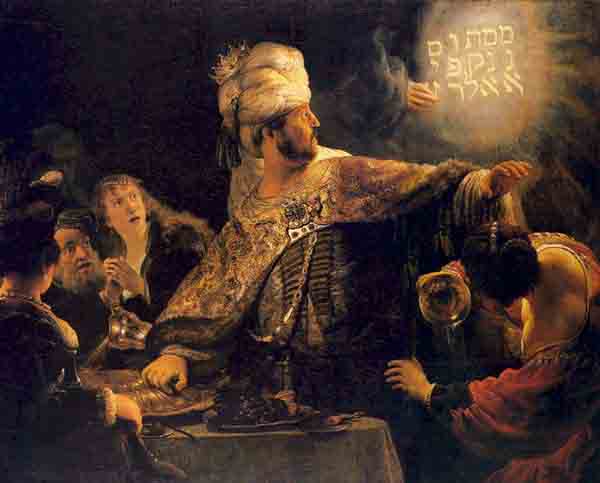
The party was in full swing, the wine flowed freely, and everyone felt on top of the world. There was no power on earth to rival Babylon, and no gods in heaven to equal hers.
This is the setting of the famous fifth chapter of the Book of Daniel—the story of Belshazzar’s feast.
King Belshazzar, we are told, was the descendant of Nebuchadnezzar the Babylonian king, he who had conquered Jerusalem, destroyed its temple, and carried off its treasures.
Drunk with wine and power, King Belshazzar ordered the gold and silver vessels from the temple to be brought to the feast he was giving for 2,000 nobles, so that the king and his nobles, his consorts and his concubines could drink from them (Daniel 5:2). Why not show his superiority by bringing cups and dishes taken from the altars of conquered temples to use in his royal revels?
As the cups were filled, the toasts drunk, and the gods of Babylon hailed, the roisterers suddenly stopped dead in their tracks, their eyes riveted on the palace wall. A hand was writing on the whitened plaster: MENE, MENE, TEKEL, UPHARSIN.a
The Biblical text tells us that “The king’s color changed, and his thoughts alarmed him; his limbs gave way and his knees knocked together.” Surely the writing must have meaning. For rulers whose lives were directed by superstition, this was an omen—and it looked menacing! The king was afraid.
Already a library member? Log in here.
Institution user? Log in with your IP address.

